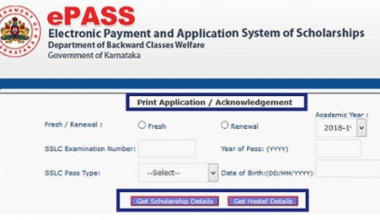Taking a year off from college may benefit, and others may be disastrous. This article will review some advantages and disadvantages of taking a year off from college.
What this article is going to do for you is to help you weigh your options by showing you all the resultant effects of your decision if you eventually do or do not take it.
Table of contents
Advantages and Disadvantages of Taking a Year Off from College
Taking a Year off College Shooting Yourself or Walking The Path of Legends?
Chances are you’ve probably heard the ‘Mark Zuckerberg, Bill Gates dropped out of school’ rhetoric, or better still, you’ve heard your colleagues say “School is a scam” as often as they say “I’m broke” and if you’re a student, you know that’s often.
The good thing is that you’ve cleared the first hurdle in the confusion track race. That is, you’re not considering dropping out of school as many people erroneously think Mark Z and Gates did. You also have a time slot for your absence: 1 year.
The truth is, I have no idea why you’re considering taking a year off. It could range from you’ve been involved in an accident.
It’s going to take you a while to heal, economic restraints, the loss of a loved one which has some resultant effects on your education, you’ve found a greater calling to your life and future, or you got a 1-year ticket to travel somewhere you’ve always wanted to go or to grow your startup company. The probabilities are endless.
What this article is going to do for you, is to help you weigh your options by showing you all the resultant effects of your decision if you eventually do or do not take it.
Disadvantages of taking a year off from college
Before considering taking a year off from college, you should consider some of the disadvantages of “taking a year off from college.”
- You’ll lose an academic year.
I’ll start with the bad news first. First and foremost, you’ll lose an academic year. This means you’ll probably graduate an academic session later than your mates, and you’ll have to take classes with your immediate juniors.
- Issues may arise from Parents.
Secondly, there’s the probability that, depending on the kind of family you come from, they will kill you or stop funding you for any expenses during your 1-year hiatus or, in some extreme cases, disown you.
- Emotional Problem
Thirdly, you might have depression, anxiety, or self-doubt because once you’ve taken that decision, particularly if it’s for something you consider important and others don’t, like devoting time to your startup, if things don’t pick up on time, doubts can arise.
- High probability of failing
Lastly, if you’re taking the year off college to start something, there’s a possibility that you’ll fail. Yes, I’ve told you the truth in technicolor: you might fail, or better still, you might succeed at knowing that that thing or the way you tried to do the thing won’t work.
Check this out: 15 Budget Apps For College Students in 2024 | Best Reviews
Advantages of taking a year off from college
- Now, let’s go to the good part. First and foremost, you will never criticize yourself or spend the rest of your life wondering what would have happened if you had taken that chance.
- Secondly, it gives you time to sort yourself out to heal from that accident, set up your business, recover your mental or emotional health, or other stuff.
- Thirdly, it helps your grades. Taking a year off will help you to concentrate on the thing you took an absence for instead of trying to juggle it with your academics because, in almost all cases, it is almost impossible that you do something huge or emotionally, mentally, or physically occupying. It won’t tell on your grades.
- In addition to all that has been said, you get to follow your dreams or do that crazy thing, and you’d be better off in the long run. In essence, you might succeed.
Should I take a year off from college?
So, you’re probably asking me now: Should I take a year off from college?
And my answer is, yes, of course not. Yes, it is wrong for you to decide if you don’t consider the following perks and see if they work for you. You thought I was going to choose for you? Not on your life.
Things to consider before considering taking a year off from college
First and foremost, you need to ask yourself, ‘Why do I want to take a year off from college?’, you then need to add a sub-question, ‘Is it worth it?’ You have to sit down and think it through in line with your future desires and goals. Will this be for the better good of nobody else but you?
Secondly, understand how your college works. Some colleges give a maximum of 5 years to take off college, and some 7. So probably, in case something comes up, and you can’t return, you’re aware of your options.
You also have to know how to apply for that leave of absence for a year, how to do it correctly, and when to do it. Do you do it before exams or before the beginning of a new academic calendar? You need to find out.
Thirdly, use your faculty adviser, secretary, or school counselor. You can share with them the reasons why you want to take leave.
The glitch to this, however, is that if it’s not a life-threatening thing and it’s something like what Mark Zuckerberg did: taking a while off to nurture Facebook, they might think you’re crazy and advise you against it. So, you have to know your onions well. Some people will just never be able to see the future as you do.
In addition, tell your parents or guardians about it particularly if they’re the ones paying your college fees. Certain realistic situations might not give you the luxury of doing this, but most times, and more often than not, it is wise to tell them.
Furthermore, plan to the end. This probably includes scheming out a plan B and evaluating the possibility of losing funding from your parents and how you’ll be able to cope on your own financially, having alternative plans if, at the end of your hiatus, something goes wrong or it doesn’t go as planned, or something comes up.
Conclusively, read about your dilemma or discuss what you want to do with your mentor or role model if you have one.
You can never get lost in the multitude of wise counsel. It’s either people giving you a million reasons why you shouldn’t, which strengthens your resolve, or a thousand reasons why you should which could help shape your final decision.
I’d personally recommend that you read “The Third Door” by Alex Banayan. He’s the closest to someone whose story you can relate to, having had to consider this option in his third year at the University.
Writing this reminds me of a quote by Rob Siltanen;
“Here’s to the crazy ones. The misfits. The rebels. The troublemakers. The round pegs in the square holes. The ones who see things differently. They’re not fond of rules. And they have no respect for the status quo.
You can quote, disagree with, glorify, or vilify them. The only thing you can’t do is ignore them because they change things.
They push the human race forward. And while some may see them as crazy ones, we see genius. Because the people who are crazy enough to think they can change the world are the ones who do.”
Check this out: 30 Affordable Colleges with the Best Study Abroad Programs 2024
Recommendation
DISCLOSURE: This post may contain affiliate links, meaning when you click the links and make a purchase, we receive a commission.






Comments are closed.